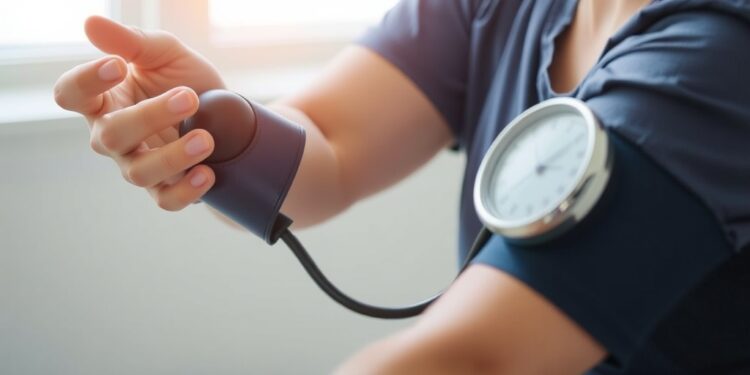Recent research published in the journal BMJ Medicine reveals that relaxation techniques, including mindfulness and yoga, may provide short-term reductions in high blood pressure. The study is a pooled data analysis that encompasses various existing research studies aimed at understanding the effects of relaxation methods on blood pressure, specifically high blood pressure and pre-hypertension. The findings suggest that while these methods can lead to temporary decreases in blood pressure, their long-term effectiveness remains uncertain, prompting a call for further robust research.
High blood pressure is a significant health issue, affecting nearly one in three individuals aged between 30 and 79. This condition is known to contribute to a multitude of health complications and is one of the leading preventable causes of mortality. Despite the availability of pharmaceutical treatments, many individuals struggle with adherence to these medications, leading to a growing interest in non-pharmacological interventions like relaxation techniques. High stress levels have been identified as a major contributor to hypertension, making stress management an essential area of exploration.
As relaxation techniques gain traction as an alternative or complementary approach to drug therapies, researchers have sought to identify which methods might be most effective in lowering blood pressure. This comprehensive systematic review examined data from 182 studies—166 focusing on high blood pressure and 16 on elevated blood pressure. Utilizing network meta-analysis, a sophisticated statistical method that allows for the comparison of multiple interventions simultaneously, the researchers sought to clarify the impacts of different relaxation methods.
The results from 54 studies included in the analysis indicated that various relaxation techniques generally resulted in reductions in both systolic and diastolic blood pressure within three months. Among the most frequently studied interventions were breath control, yoga, Tai Chi, biofeedback, and progressive muscle relaxation. Notably, breath control led to an average reduction of 6.65 mmHg in systolic blood pressure, while mindfulness showed a more significant drop of 9.90 mmHg. Meditative movements such as Tai Chi and yoga and even listening to music produced comparable effects, further underscoring the potential benefits of integrating these practices into lifestyle changes for those managing high blood pressure.
However, the analysis also highlighted a key issue: the positive effects observed in the short term did not seem to persist beyond three months. Statistical evidence for sustained effectiveness was lacking in studies with follow-up periods extending to six or twelve months. The researchers emphasized that the certainty of these findings is very low, primarily due to the risk of bias inherent in the existing studies and the limited number of research endeavors conducted over extended periods.
A small number of studies examined the long-term efficacy of relaxation techniques beyond three months, but the available data suggested that while some interventions, like autogenic training, may help reduce blood pressure, the confidence in these conclusions remains low due to methodological limitations and a lack of comprehensive reporting regarding adherence to techniques. The inconsistency in how relaxation methods were described across studies adds further complexity in evaluating their effectiveness.
The researchers acknowledge that the studies reviewed often lacked key information regarding the costs associated with these interventions and their long-term impact on cardiovascular events or mortality. Such information is critical to gauging the practical implications of incorporating relaxation techniques into standard treatment protocols for hypertension. As it stands, the data suggest that while short-term improvements in blood pressure may be achievable through relaxation and stress management techniques, the benefits may not translate into long-lasting health improvements necessary for managing a chronic condition like hypertension.
This research calls for further investigation into the role of relaxation methods in the treatment of high blood pressure. Future studies must emphasize rigorous methodological designs and longer follow-up periods to accurately assess the sustainability of these benefits. It is crucial that researchers report not only the efficacy of these interventions but also adherence rates among participants, as these factors could significantly influence outcomes. Current findings provide a foundation for exploring the physiological and psychological mechanisms behind relaxation techniques’ effectiveness and highlight the need for more comprehensive data.
Hypertension is a chronic, multifactorial condition that necessitates long-term management strategies. Although the current study points to the potential of relaxation techniques as part of a comprehensive approach to blood pressure management, it emphasizes that short-lived results may not yield significant clinical benefits. Therefore, integrating sustainable practices alongside prescribed medications may provide a holistic solution for individuals facing the challenges of high blood pressure.
The findings of this systematic review reaffirm the complexity of hypertension treatment. Despite the temporary successes noted with relaxation techniques, the overarching need for reliable, clinically significant results must drive future research efforts. This knowledge will ultimately help refine treatment strategies that effectively address hypertension while enhancing overall quality of life for those impacted by this common but serious health condition.
In conclusion, while relaxation techniques may offer a promising avenue for blood pressure management, the existing body of research is insufficient to claim them as definitive treatments. As scientific inquiry into this area continues, healthcare professionals should approach these findings with a balanced perspective, combining traditional pharmacological methods with lifestyle modifications that include stress management strategies for the best patient outcomes.
Subject of Research: Relaxation techniques’ impact on high blood pressure
Article Title: Effectiveness of stress management and relaxation interventions for management of hypertension and prehypertension: systematic review and network meta-analysis
News Publication Date: 8-Apr-2025
Web References: BMJ Medicine
References:
Image Credits:
Keywords: Hypertension, Blood Pressure, Stress Management, Relaxation Techniques, Mindfulness, Yoga, Tai Chi, Biofeedback, Progressive Muscle Relaxation




